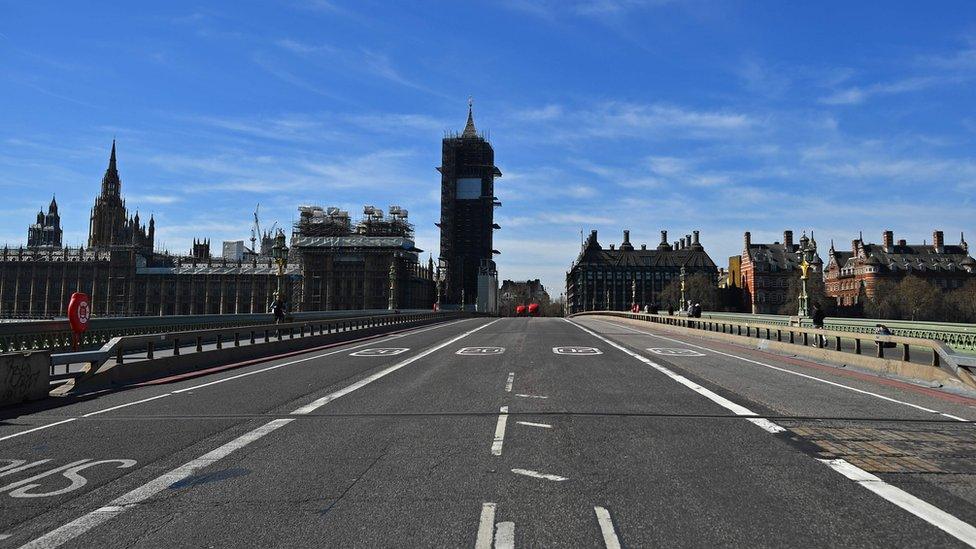Coronavirus: Children can visit separated parents during restrictions
- Published
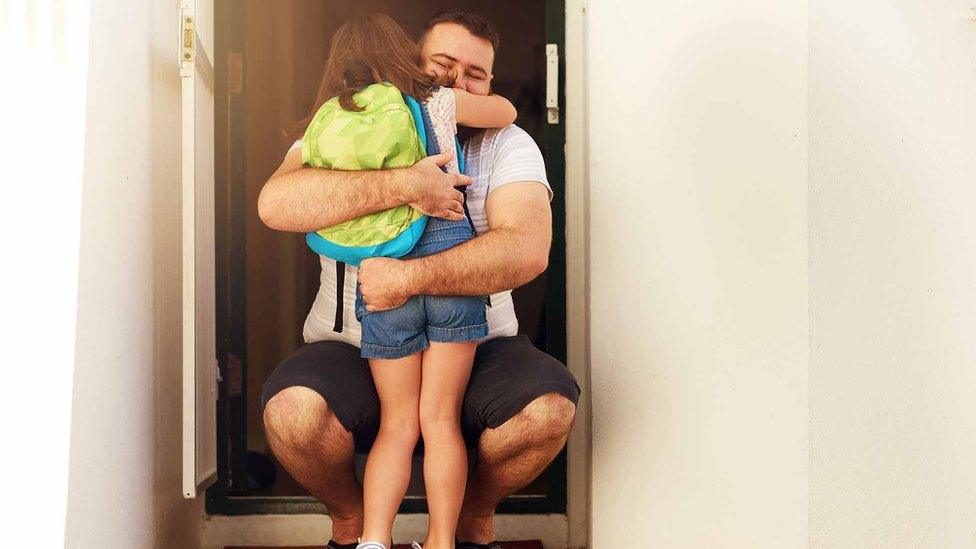
Children of parents who are separated are able to move between households during the coronavirus restrictions, minister Michael Gove has said.
Some parents were worried they would not be able to see their children if they do not live with them full-time.
He initially suggested children should not be travelling between different houses during the restrictions.
But he later back-tracked and apologised for being unclear, saying it "may be necessary" for some to move.
Allow X content?
This article contains content provided by X. We ask for your permission before anything is loaded, as they may be using cookies and other technologies. You may want to read X’s cookie policy, external and privacy policy, external before accepting. To view this content choose ‘accept and continue’.

Boris Johnson announced on Monday that the government was bringing in strict new measures to tackle the spread of the coronavirus.
He said people should leave home for only a few clear reasons - exercise once a day; absolutely necessary travel to and from work; essential shopping; and medical or care needs.
That left some parents, whose children split their time between households, with questions, and further confused when Mr Gove told Good Morning Britain that children should not be moved.
Allow X content?
This article contains content provided by X. We ask for your permission before anything is loaded, as they may be using cookies and other technologies. You may want to read X’s cookie policy, external and privacy policy, external before accepting. To view this content choose ‘accept and continue’.
The government guidance says, external: "Where parents do not live in the same household, children under 18 can be moved between their parents' homes."
Jude Clay, 37, who runs single parenting blog Gluing Cheese, has a four-year-old son with her former partner.
He splits his time equally between both parents and was with his dad when Boris Johnson addressed the nation.
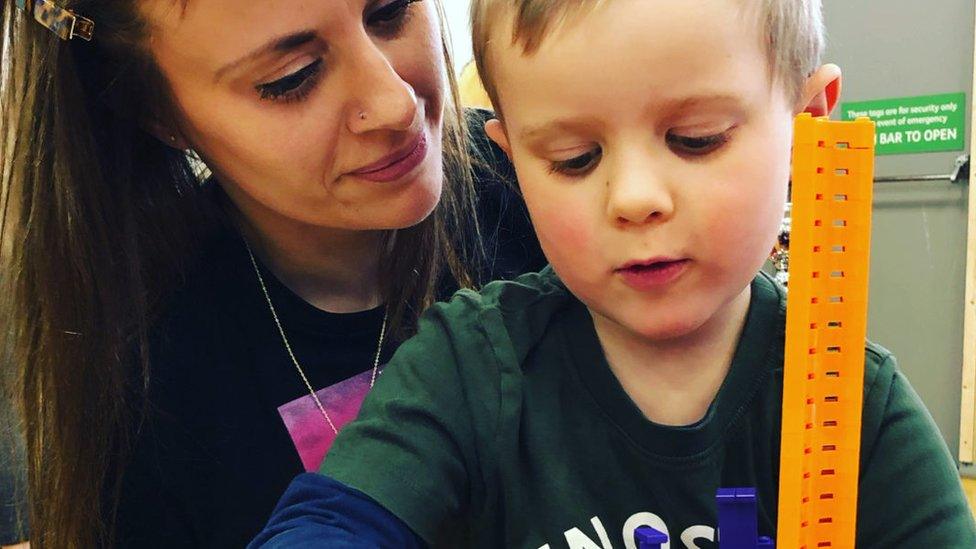
Jude's son splits his time equally between her house and her ex-partner's house
"When the announcement came last night I had the second panic attack I've had in my life," she told BBC News.
"We would follow the advice but the thought of not seeing my little boy for three weeks, I couldn't bear thinking about.
"It's been a really scary time not knowing what's going to happen. So I'm grateful it's come up quite early on. To wake up to the news that this has been addressed and we've not been forgotten is a huge relief.
"I completely understand people have to be careful but I would class this as a necessary journey.
"For him to not have the ability to spend time with his parents would be one step too far and detrimental to his wellbeing."
It was a similar situation for dad Andrew Greenhalgh. He is divorced from his daughter's mum - and sees his child on his days off from work.
"My daughter's mother was with her when they heard about the three-week announcement. When she did, her eyes apparently welled up and she asked, 'Does that mean I won't get to see my dad?'
"I called my ex-wife and we were both unsure but I told her I would still see her. I then rang the local police and asked what the policy was for this kind of situation and explained mine further.
"The police got back fairly quickly and said that as long as we were sensible it would be fine to see my daughter still.
"I wash my hands constantly anyway but have stepped that up since the virus.
"I'm just happy it's all been cleared up."
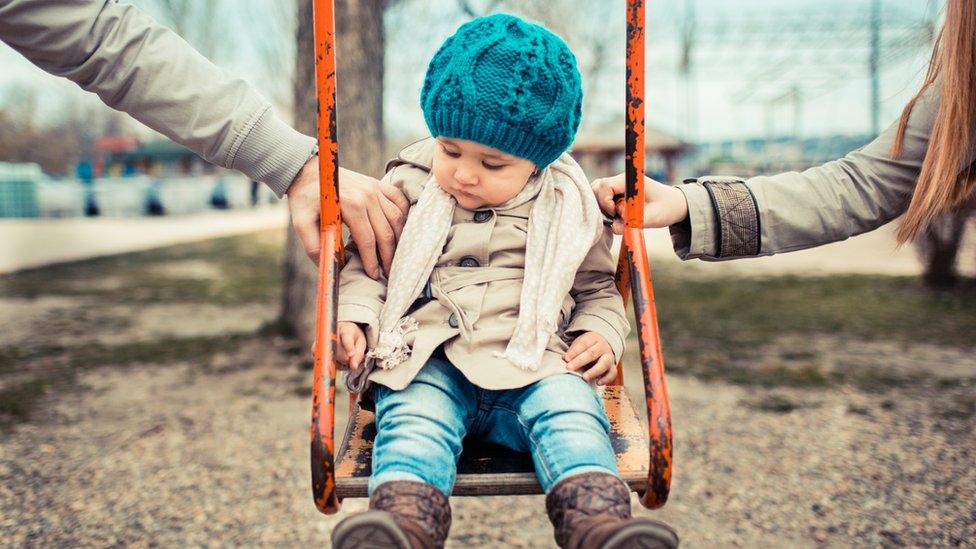
Some parents think there are still unanswered questions

A SIMPLE GUIDE: What are the symptoms?
AVOIDING CONTACT: Should I self-isolate?
LOOK-UP TOOL: Check cases in your area
MAPS AND CHARTS: Visual guide to the outbreak

But some parents feel that the government's guidance doesn't address all of the scenarios separated families face at this time.
Sam - not her real name - lives with her four-year-old son, who usually spends a couple of days a week with his dad.
"It's leading to more questions than answers among many of the separated parents I know," she says.
"I'd already decided to cease physical contact with my child's father last week because of my medical background.
"I sought advice from various professionals to support my decision before giving his father a very clear message that I didn't think it was safe for him to continue to travel between our two homes, which he accepted.
"I explained he could have video contact whenever he wanted and that we'd keep in touch and re-examine things in the light of any new government advice.
"It will be hard for them, I understand that. It will also be hard for me because I still have to work, and my child won't be going to nursery either.
"But it's not about access and time spent with each parent, or who's missing out, it's about life and death."
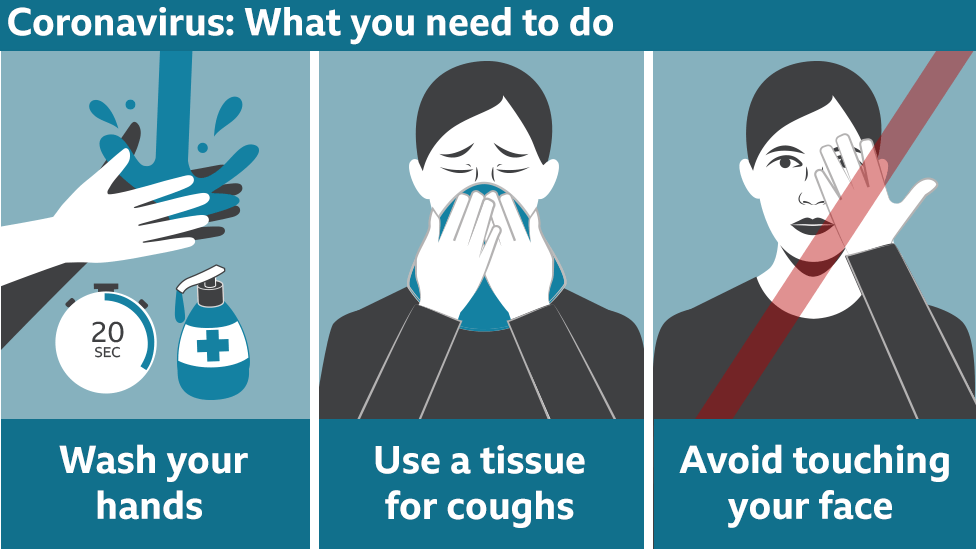
Gingerbread, a charity which supports single parent families, has had queries about the government's rules.
CEO Victoria Benson said the government advice was clearer but there was still some confusion and concern about whether either parent can insist on, or refuse to allow, movement.
"We advise that parents should carefully consider the implications of children travelling between households and the welfare of the child (including the child's health needs) must be the most important consideration," she said.
"The health of other household members may also need to be taken into account. Wherever possible, parents should work together to ensure that a solution can be found. We would welcome further guidance on this from the government."
In many cases, children with separated parents are the subjects of court orders, setting out how much time they should spend with each parent, often specifying a schedule of contact visits for "non-resident" parents.
Guidance from Sir Andrew Macfarlane, president of the Family Division of the High Court, external, later clarified that, while children could be moved between parents' homes, it did not mean all children must keep travelling for contact visits.
It says: "Even if some parents think it is safe for contact to take place, it might be entirely reasonable for the other parent to be genuinely worried about this."
If one parent is worried that moving their child would be going against public health advice, they may "exercise their parental responsibility and vary the arrangement to one that they consider to be safe", even if the other parent does not agree, the guidance says.
Where this is the case, family courts will expect parents to facilitate contact by video chat or phone, it adds.
- Published24 March 2020
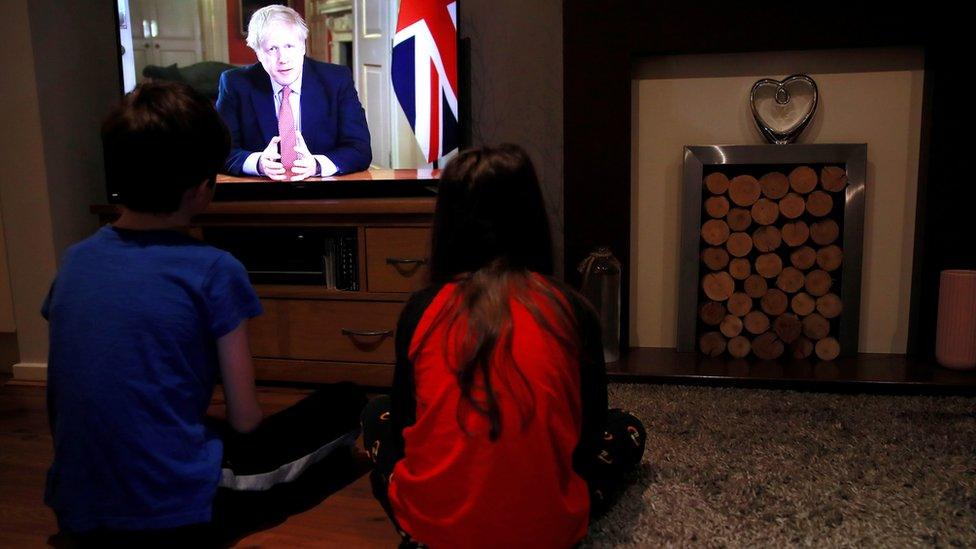
- Published22 February 2022
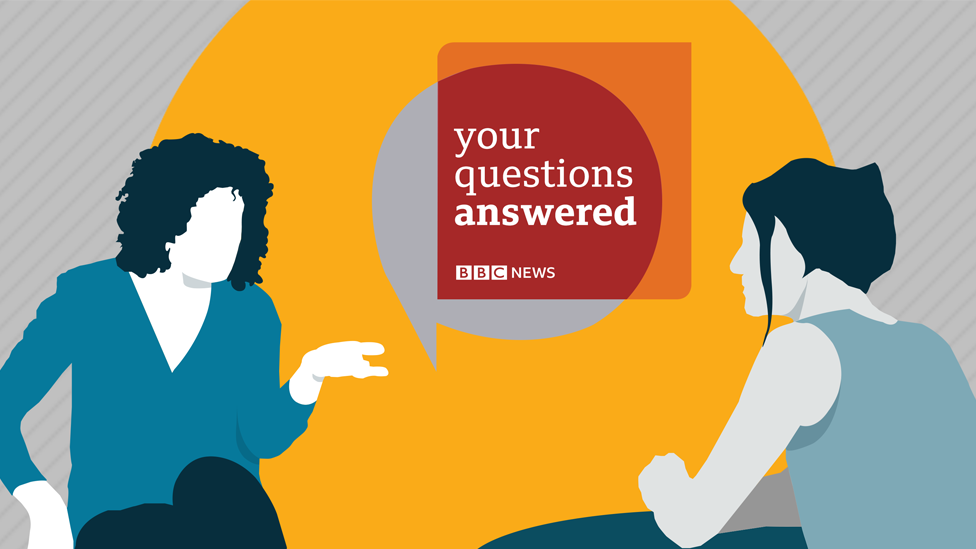
- Published1 April 2020
